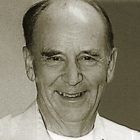
Our Declaration of Independence states: “We hold these truths to be self-evident, that all men are created equal, that they are endowed by their creator with certain unalienable rights, that among these are life, liberty and the pursuit of happiness. That to secure these rights, governments are instituted among men, deriving their just powers from the consent of the governed.”
The signers of the Declaration pledged their lives, their fortunes and their sacred honor to create it.
These men invoked God as the basis on which our government is founded to provide liberty and justice for the people of our nation. The First Amendment of our Constitution says, in part: “Congress shall make no law respecting an establishment of religion, or prohibiting the free exercise thereof.”
That denies government the power to establish a national religion or to infringe on the right of the people to worship in whatever manner they choose, or to not worship at all.
The Ninth Amendment states: “The enumeration in the Constitution of certain rights shall not be construed to deny or disparage others retained by the people.”
The 10th Amendment states: “The powers not delegated to the United States by the Constitution, nor prohibited by it to the states, are reserved to the states respectively, or to the people.”
The Pilgrims, a group of English religious separatists in search of religious freedom, established a colony at Plymouth in 1620. The Puritans, a branch of the Church of England that desired religious freedom, established settlements at Salem in 1628 and in Boston in 1630. They had a charter from King Charles I to settle and govern the territory between the Charles and Merrimac rivers. Only church members could vote.
They were essentially self-governed until 1660.
Tensions between the colony and England resulted in the annulment of the charter in 1684.
King James II established the Dominion of New England in 1686 to put the colonies under firmer control. The dominion collapsed after King James was deposed in 1688 and the colony reverted to its original charter.
William and Mary, co-regents of England, issued a new charter in 1691, unifying Massachusetts Bay with Plymouth and including parts of New York and New Jersey, all of Maine, New Brunswick and Nova Scotia under a royal governor. The new charter took away many of the rights of self-government. It provided religious freedom, ended religious restrictions on voting and reserved all fishing rights to British interests only.
These experiences, among others—self-government, religious freedom, the limitation of the right to vote to members of the Church of England, loss of fishing rights—led our Founding Fathers to form a government that protects the rights of each individual, a nation in which all are equal in the eyes of the law, and a Constitution that provides checks and balances to prevent undue accumulations of power.
George Washington said in his farewell address, on Sept. 19, 1798, “Of all the dispositions and habits which lead to political prosperity, religion and morality are indispensable supports. In vain would that man claim the tribute of patriotism, who would labor to subvert these great pillars of human happiness, these firmest props of the duties of man and citizens.”
If we can elect people who support these principles with their words and actions to represent us in our government, we will have made a good start to restoring and supporting the nation the Founding Fathers pledged their lives, fortunes and sacred honor to create.
Frank Slater, retired math teacher and Korean War veteran, lives in Vaughn.
UNDERWRITTEN BY THE FUND FOR NONPROFIT NEWS (NEWSMATCH) AT THE MIAMI FOUNDATION, THE ANGEL GUILD, ADVERTISERS, DONORS AND PEOPLE WHO SUPPORT INDEPENDENT, NONPROFIT LOCAL NEWS